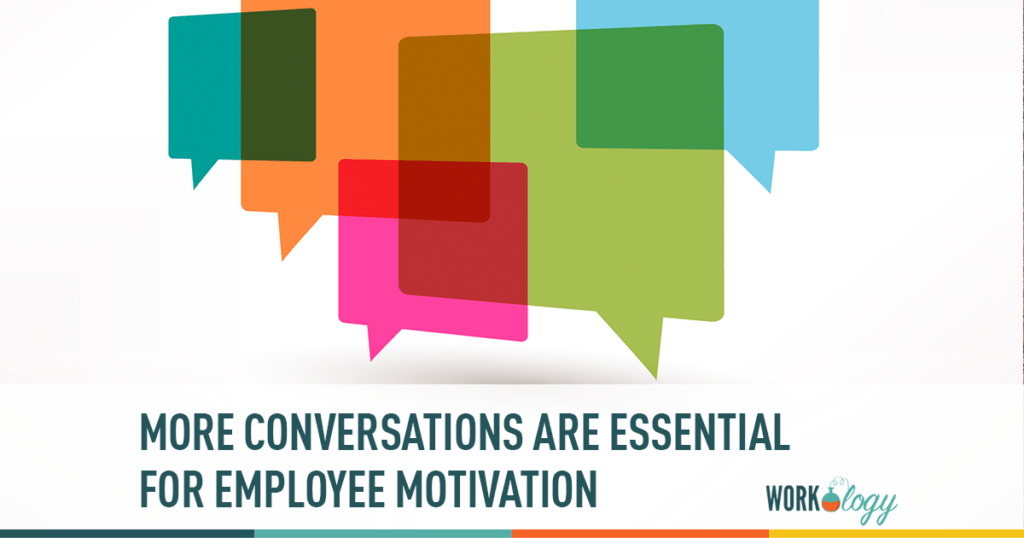Developing and nurturing a motivated workforce is one of the single most important things any organization can do to secure and maintain competitive advantage. But it seems that most companies aren’t doing a good job, as according to Gallup a staggering 87% of employees around the world report feeling disengaged at work. There are many factors contributing to this extremely costly problem, but a primary offender is the outdated processes and technologies that most enterprises still rely on to manage employee performance and develop their workforce.
More Conversations Are Essential to Keep Employees Motivated
To provide forward-thinking HR and business leaders insights into the workforce performance management practices and trends that are so critical in today’s competitive environment, Betterworks recently conducted our second-annual State of Performance Management Survey. We surveyed nearly 800 professionals in enterprises with 500+ employees, from both HR and people management roles, to find out what is (and isn’t) working with their performance management programs. Today, we’re proud to share the first report based on this research, which focuses on how more frequent conversations improve the business impact from performance reviews, and significantly reduce the challenges associated with outdated annual reviews.
“Effective performance management practices are necessary to achieve desired business outcomes, and this year’s Survey revealed continued and growing frustration with outdated, annual performance reviews that fail to deliver value to the organization,” said Doug Dennerline, chief executive officer at Betterworks. “Today’s leaders are no longer questioning why they need to revamp these processes, but rather how to get started.”
According to the survey, both HR specialists and people managers believe that annual reviews fail to produce important business results. The top issues with them, according to respondents, are that they make employees and managers feel stressed and anxious, are overly subjective, don’t provide good feedback, and don’t truly raise employee performance.
The positive news is that survey respondents who have adopted a Continuous Performance Management process reported significantly lower incidences of key challenges associated with annual reviews, such as:
- Reviews being too subjective — reduced by 34%
- Reviews failing to improve performance — reduced by 32%
- Managers not providing quality feedback — reduced by 39%
- Review process doesn’t help retain top talent — reduced by 27%
The survey also found that HR leaders are increasingly turning toward technology to support their managers in having more frequent performance and development conversations, without creating undue administrative overhead.
- 87% of HR leaders say that managers would benefit from tech that would help them solicit and manage feedback
- 84% say that technology helps them have the relevant conversations they need to be having with their employees
- 82% say that technology reminds managers to have relevant conversations about performance and development with employees on a regular basis
Get your free copy of the first report from Betterworks’ State of Continuous Performance Management Survey for more insights around building a performance management process that actually works.









